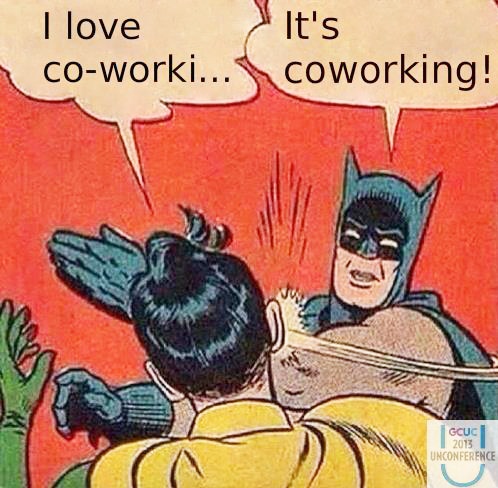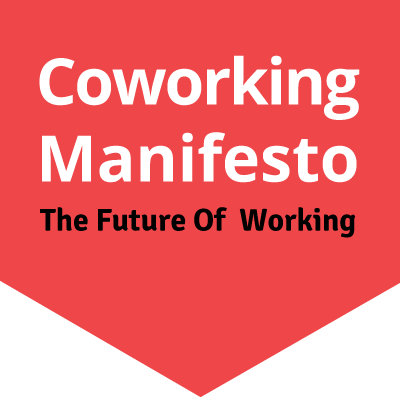BLAM! Coworking spaces pack a real punch, say researchers

As I write this I am sitting in a co-working space. I don’t own it or have shares in it or anything, I am just a regular coworker. I come here most working days I’m not on the road. It’s nice.
I am not alone in thinking so. Studies suggest there is something about coworking spaces.
Researchers have discovered people who belong to them report levels of thriving approaching six on a seven point scale. That’s a point higher than the average employee in an average office.
What makes co working spaces – membership-based work spaces where diverse groups of freelances or remote workers toil together in a shared, communal setting – so effective?
1. People who use co working spaces see their work as meaningful.
Sure, freelancers are working for themselves, but researchers found it was about more than that. People working in coworking spaces reported being able to bring their whole selves to work.
Unlike a normal office, co-working spaces consist of members who work for a range of different companies. Free from competition or internal politics, they don’t feel they have to put on a work persona to fit in.
Working among different kinds of workers can make your work identity stronger.
Secondly, meaning can come from working in a culture – or “value eco-system” as its been called – where helping each other out is the norm and they are many opportunities to do so.
Lastly, the social mission inherent in the Coworking Manifesto, an online document signed by over 1700 working spaces, articulates the values the coworking movement aspires to, namely, community, collaboration, learning and sustainability. Coworkers can feel themselves part of a social movement if they want to.
2. Coworkers have more job control
The coworking space I work in, like most of them, is accessible 24/7. When there is deadline members can work long hours. When its quiet they can go for a lunchtime swim at a pool nearby. They choose whether to work in quiet spaces or more collaborative spaces where interaction is encouraged. Or they can work from home, without getting into trouble with their boss.
Autonomy is nice, but researchers discovered that coworkers also value structure in their working lives.
Paradoxically, a limited form of structure provides an optimal degree of control in the lives of independent workers.
3. Coworkers feel part of a community
Co-workers can choose how they socialise with others. There is usually a coffee space where, crucially, you can choose to hang out and chat. While some will socialise more than others, researchers found even quiet coworkers still felt a strong bond to the community. Perhaps because there was the potential for interactions if they needed them.
So what does all this mean for traditional offices?
I’ve invited clients into my coworking space for workshops with great success.
But more profoundly, there are lessons for employers about allowing people to craft their work in ways that give them purpose and meaning.
For example, some companies are adopting a best planning practice of providing a 1:1 ratio of desk seats to seats in shared settings for quiet or collaborative work respectively.
But what it’s really all about is autonomy and the chance to be yourself at work.
The lesson is that if you give people the space and support to be their authentic best selves they will thrive, and bring their best energy and ideas to the office each day.
Even if it is a corporate headquarters.
Posted in: Infographic of the day

